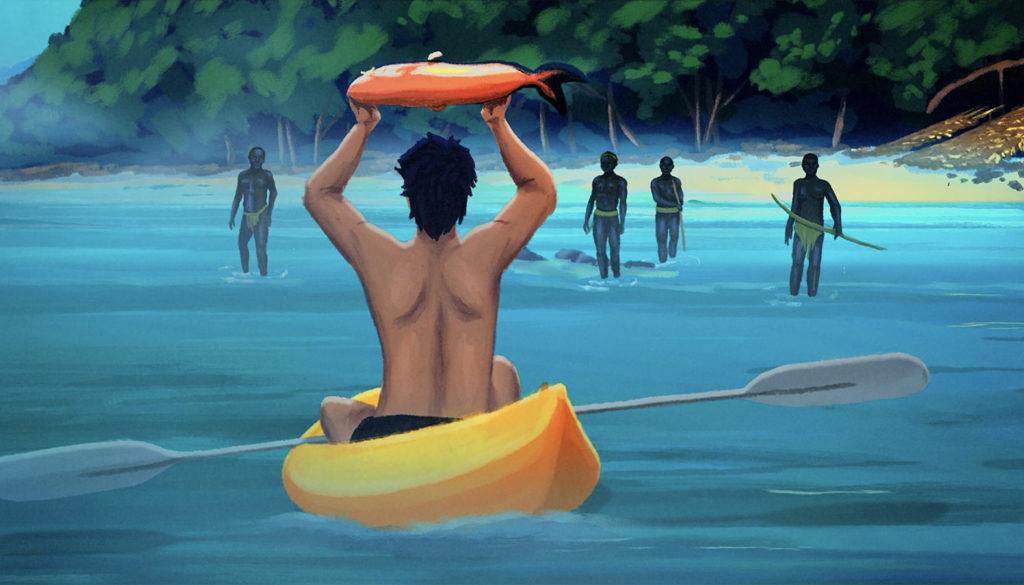When I was a kid in school I marveled at stories about the early explorers. The Spanish, no doubt because they were the Catholic “good guys,” were the favorites. The complicated facts of culture, land, power, enslavement, diseases, etc., would come later. When you’re 10 and your head is filled with images of dashing soldiers in curved steel helmets and armor, with long swords fastened at their waists, you’re good to go.
The other stories we were imbued with were those of famous missionaries. The stories of these men — the French missionaries in Canada, the Jesuits who traveled to Japan, and a host of others — filled us with awe and a certain amount of dread. But those days of martyrdom, so we thought, were remote and far away, not something we had to worry about in our American suburban bubbles.
“The Mission,” a film currently on Hulu, is the story of a missionary in modern times, a young man from a not-so-remote land who gave his life with a Bible in his hand.
John Chau had a typical childhood. He grew up in an evangelical Protestant household and, besides his own infatuation with explorers and adventures, his faith in Christ grew into a vocation.
Chau was so filled with zeal and a sense of adventure that in 2018 he embarked on a course to become a missionary like many who had gone before him. He was resolute to travel to a remote place and preach the Gospel to people who had never heard the word.
In the 16th century, there were whole continents full of people who would fit that bill. Today, with every inch of the globe seemingly inhabited by people or recorded by satellite imagery, it is hard for us to contemplate a land where no “outside” human has visited. But there are still locations on terra firma where not much human contact has been made. In the Bay of Bengal, John Chau found what is known as North Sentinel Island.
Located within the territorial waters of India, the island is “managed” by the Indian government, but that is a term of art. India keeps its distance and its policy is for others to do likewise. There is a good reason for that. The people there do not want to be contacted and have a history of making their wishes known with spears and arrows.
This is the place Chau felt destined to travel to with his Bible and to talk about Jesus.
The documentary tells the story of how this all-American boy from California, with loving and devoted parents, not only stayed in the faith his parents espoused but made it the center of his life.
The family did not participate in the documentary. The only personal commentary is an excerpt from a letter written by John’s father about his son’s decision to undertake this missionary adventure.
The father was a man of science, and although he expresses belief in Jesus, he does not understand his son’s zeal. In the letter, he openly questions his son’s decision. It is heartbreaking to hear the words of a stricken parent.
The film seems fair, but from the father’s letter and interviews with former missionaries who have “seen the light” and now believe the missionary model is suspect, Chau is portrayed as reckless and impractical.
Was this a wise thing for this young man to do? Obviously not. But what is the history of the Church but a series of “unwise” words and actions? It was not wise for Jesus to say “before Abraham was, I am.” It was not wise for St. Peter to go back to Rome so he could be seized and hung upside down on a cross.
We do not have to fly toward the red martyrdom of John Chau, but almost every day here in Los Angeles there is an opportunity for us to be missionaries. Witnessing here may not get us a literal arrow through the heart, but it can lead to a “white martyrdom” of isolation, lost friendships, and even lost employment, if we hold to the teachings of the Church in the headwind of a society in defiance of those same teachings.
Maybe John Chau should not have run so hard toward his fate, but neither should we run so hard in the other direction.

